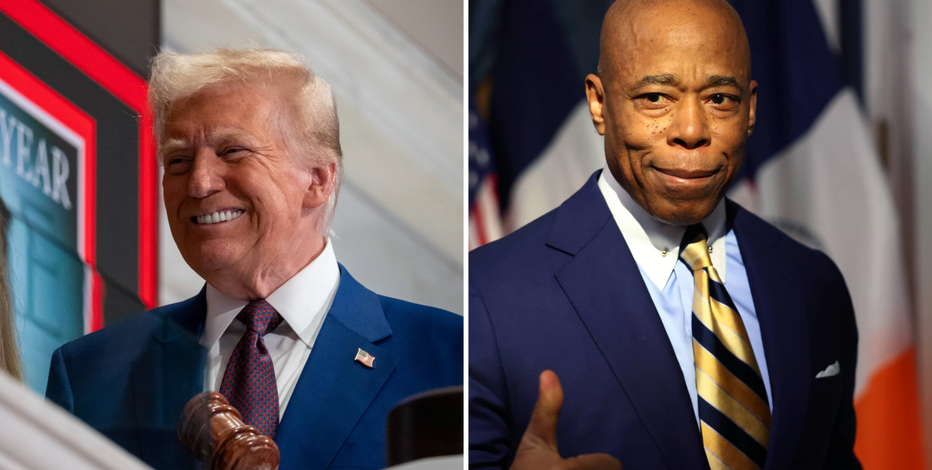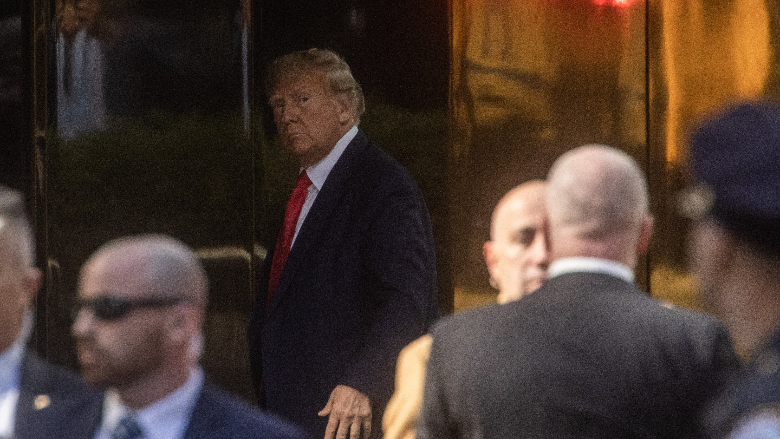New York City Mayor Eric Adams took a trip to Florida recently to meet with President-elect Donald Trump at Mar-a-Lago, sparking interest and speculation across various political circles. On the eve of this meeting, Adams’ office released a statement confirming the gathering. The statement, issued by New York City’s deputy mayor for communications, Fabien Levy, highlighted the mayor’s intent to discuss the priorities of New Yorkers with the incoming president. It expressed Adams’ anticipation of a productive dialogue with Trump, focusing on advancing both the city and the nation.
Give Me News Podcast
Adams has shown signs of aligning with some of Trump’s policies in recent weeks, particularly concerning immigration. He has met with Tom Homan, the soon-to-be border czar in Trump’s administration, showcasing his openness to collaborate with the federal government. Levy’s statement emphasized Adams’ willingness to work alongside Trump, underscoring the importance of this partnership for New York City’s prosperity.
The agenda for the meeting reportedly included discussions on gang-related issues, according to the New York Post. Meanwhile, MSNBC speculated on the financial aspects of Adams’ trip, suggesting that taxpayers might have borne the costs.
The timing of this meeting is notable as it comes just days before Trump is set to return to the Oval Office, regaining his power to grant pardons. This is particularly relevant for Adams, who faces federal charges related to wire fraud and bribery, allegedly involving favors from the Turkish government.
Trump has previously voiced a degree of sympathy for Adams’ predicament, suggesting that federal authorities may have targeted him due to his criticism of President Joe Biden’s handling of immigration issues. When questioned about the possibility of pardoning Adams, Trump expressed openness to the idea, describing the treatment of Adams as potentially unfair. However, he noted that he would need to review the specifics of the case before making a decision.
Despite the legal challenges Adams faces, his office clarified that the topic of a pardon was not on the agenda during his meeting with Trump. Nevertheless, the meeting has drawn criticism from some of Adams’ rivals in the forthcoming NYC Democratic mayoral primary. These opponents have insinuated that Adams’ meeting with Trump was motivated by a desire to secure a pardon.
State Senator Zellnor Myrie took to social media to express skepticism about Adams’ intentions, suggesting that the meeting was more about personal agendas than public service. Similarly, New York City comptroller Brad Lander called on Adams to assure New Yorkers that he would neither seek nor accept a pardon from Trump. Lander emphasized the importance of transparency regarding the funding of Adams’ trip, questioning whether public funds or external entities like Turkish Airlines were involved.
This situation has certainly stirred the political landscape, prompting discussions about the relationship between local and federal governance, especially under the changing dynamics of national leadership. As Adams navigates these turbulent waters, the implications of his actions and alliances will likely continue to be a focal point of public and political scrutiny.
The backdrop of this meeting is a complex web of political, legal, and personal challenges for Adams. His willingness to engage with Trump, amidst his legal woes, paints a picture of a mayor searching for avenues to safeguard his political future while addressing the pressing needs of his constituents.
This meeting and its surrounding controversies underscore the intricate nature of political alliances and the often-blurred lines between personal interests and public duties. As both Adams and Trump stand at pivotal points in their political careers, their interactions may have far-reaching consequences for their respective domains.
For Adams, the stakes are high as he faces not only legal battles but also the court of public opinion. His decisions in the coming days will be critical in shaping his legacy as mayor and his potential for future political endeavors.
For Trump, re-entering the Oval Office comes with its own set of challenges and expectations. His interactions with figures like Adams could signal his approach to governance in the coming term, particularly in dealing with urban centers and their unique challenges.
As the narrative unfolds, the implications of this Florida meeting will be keenly observed by political analysts, media, and the public alike. The outcomes may well influence the dynamics of governance and political strategy in the months and years ahead.
Whether this meeting yields tangible benefits for New Yorkers or remains a symbolic gesture of political maneuvering remains to be seen. But in the world of politics, where perception often becomes reality, the meeting has already achieved significant attention and discussion.
As the story develops, the focus will likely remain on how these political figures navigate their respective paths, both individually and in relation to one another. The complexities of their interactions offer a glimpse into the broader challenges and opportunities that define contemporary political landscapes.

